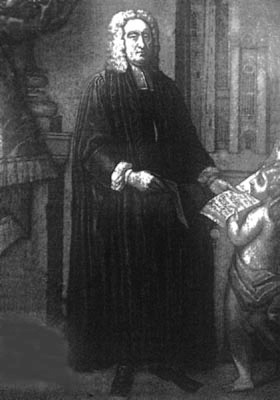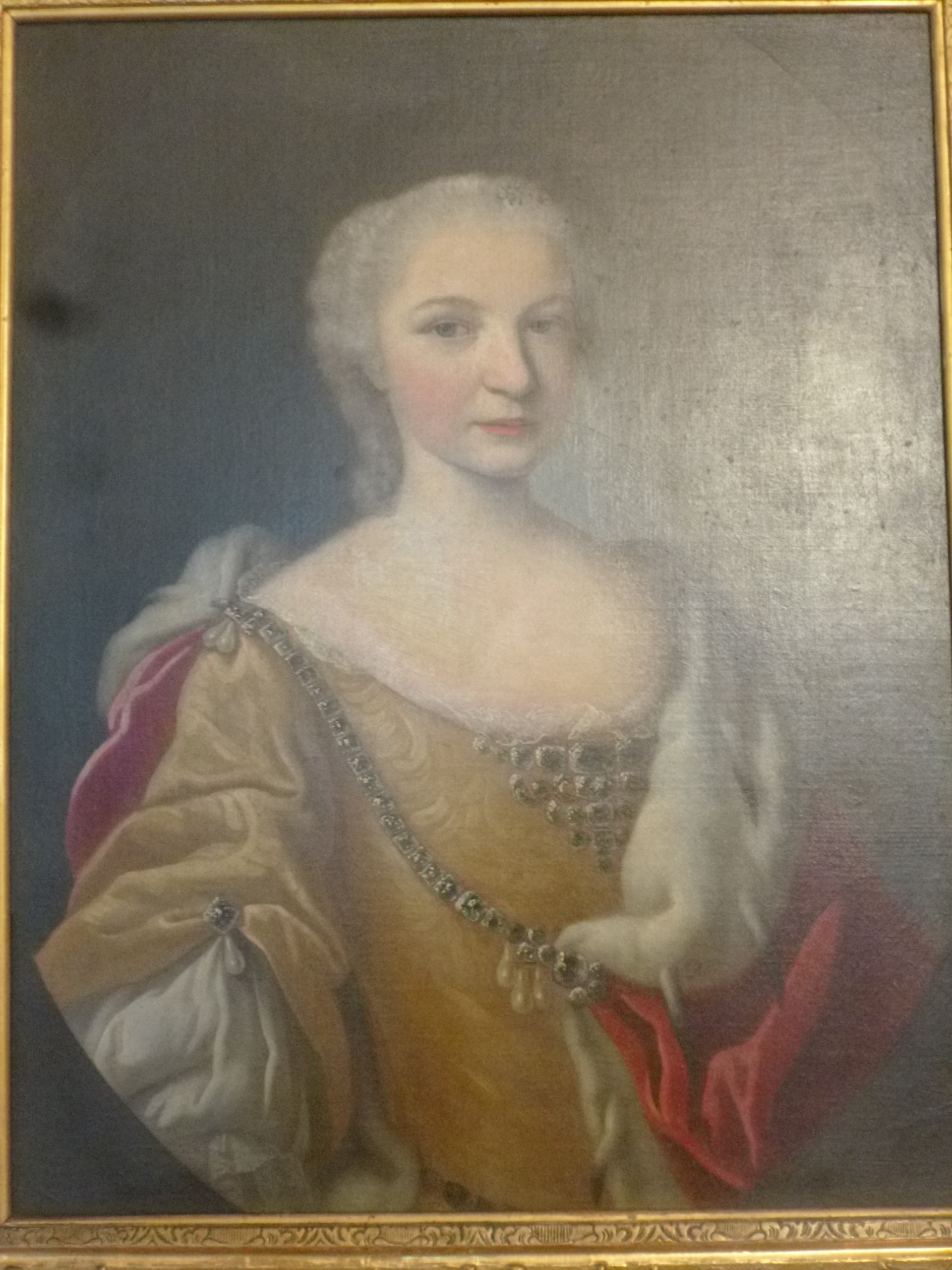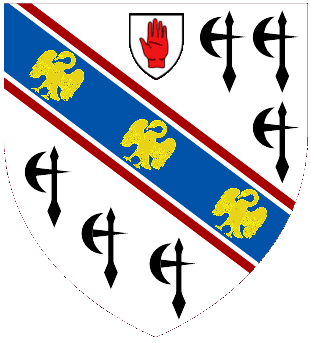|
John Eachard
John Eachard (1636?7 July 1697) was an English divine and satirist, noted for his humorous descriptions of the contemporary clergy. From Yoxford in Suffolk, he was educated at St Catharine's College, Cambridge, of which he became master in 1675 in succession to John Lightfoot. He was created D.D. in 1676 by royal mandate, and was twice (in 1679 and 1695) vice-chancellor of Cambridge University. In 1670 he had published anonymously a humorous satire entitled ''The Ground and Occasions of the Contempt of the Clergy'' enquired into in a letter to R. L., which excited much attention and provoked several replies, one of them being from John Owen. These were met by ''Some Observations'', etc., in a second letter to R. L. (1671), written in the same bantering tone as the original work. Eachard attributed the contempt into which the clergy had fallen to their imperfect education, their insufficient incomes, and the want of a true vocation. His descriptions, which were somewhat exaggerat ... [...More Info...] [...Related Items...] OR: [Wikipedia] [Google] [Baidu] |
Satirist
This is an incomplete list of writers, cartoonists and others known for involvement in satire – humorous social criticism. They are grouped by era and listed by year of birth. Included is a list of modern satires. Early satirical authors *Aesop (c. 620–560 BCE, Ancient Greece) – ''Aesop's Fables'' *Diogenes (c. 412–600 BCE, Ancient Greece) * Aristophanes (c. 448–380 BCE, Ancient Greece) – '' The Frogs'', '' The Birds'', and '' The Clouds'' * Gaius Lucilius (c. 180–103 BCE, Roman Republic) *Horace (65–8 BCE, Roman Republic) – '' Satires'' * Ovid (43 BCE – 17 CE, Roman Republic/Roman Empire) – '' The Art of Love'' *Seneca the Younger (c. 4 BCE – 65 CE, Hispania/Rome) – '' Apocolocyntosis'' * Persius (34–62 CE, Roman Empire) * Petronius (c. 27–66 CE, Roman Empire) – '' Satyricon'' *Juvenal (1st to early 2nd cc. CE, Roman Empire) – '' Satires'' * Lucian (c. 120–180 CE, Roman Empire) *Apuleius (c. 123–180 CE, Roman Empire) – ''The Golden Ass'' ... [...More Info...] [...Related Items...] OR: [Wikipedia] [Google] [Baidu] |
Jonathan Swift
Jonathan Swift (30 November 1667 – 19 October 1745) was an Anglo-Irish writer, essayist, satirist, and Anglican cleric. In 1713, he became the Dean (Christianity), dean of St Patrick's Cathedral, Dublin, and was given the sobriquet "Dean Swift". His trademark deadpan and ironic style of writing, particularly in works such as ''A Modest Proposal'' (1729), has led to such satire being subsequently termed as "Swiftian". He wrote the satirical book ''Gulliver's Travels'' (1726), which became his best-known publication and popularised the fictional island of Lilliput and Blefuscu, Lilliput. Following the remarkable success of his works, Swift came to be regarded by many as the greatest satirist of the Georgian era, and one of the foremost prose satirists in the history of English literature. Swift also authored works such as ''A Tale of a Tub'' (1704) and ''An Argument Against Abolishing Christianity'' (1712). He originally published all of his works under pseudonyms—including L ... [...More Info...] [...Related Items...] OR: [Wikipedia] [Google] [Baidu] |
Masters Of St Catharine's College, Cambridge
Master, master's or masters may refer to: Ranks or titles In education: *Master (college), head of a college *Master's degree, a postgraduate or sometimes undergraduate degree in the specified discipline *Schoolmaster or master, presiding officer of a school In military: *Master (naval), a former naval rank *Master mariner, a licensed mariner who is qualified to be a sea captain in the merchant marine *Master or shipmaster, the sea captain of a merchant vessel * Master-at-arms, a naval police officer, often addressed as "Master" in the Royal Navy In orders and organizations: *Master craftsman, in the Medieval guilds In other: *Master (form of address), an English honorific for boys and young men *Master (judiciary), a judicial official in the courts of common law jurisdictions *Master (Peerage of Scotland), the male heir-apparent or heir-presumptive to a title in the Peerage of Scotland * Master of ceremonies, or MC (emcee), the host of an official public or private staged even ... [...More Info...] [...Related Items...] OR: [Wikipedia] [Google] [Baidu] |
Alumni Of St Catharine's College, Cambridge
Alumni (: alumnus () or alumna ()) are former students or graduates of a school, college, or university. The feminine plural alumnae is sometimes used for groups of women, and alums (: alum) or alumns (: alumn) as gender-neutral alternatives. The word comes from Latin, meaning nurslings, pupils or foster children, derived from "to nourish". The term is not synonymous with "graduates": people can be alumni without graduating, e.g. Burt Reynolds was an alumnus of Florida State University but did not graduate. The term is sometimes used to refer to former employees, former members of an organization, former contributors, or former inmates. Etymology The Latin noun means "foster son" or "pupil". It is derived from the Latin verb "to nourish". Separate, but from the same root, is the adjective "nourishing", found in the phrase '' alma mater'', a title for a person's home university. Usage in Roman law In Latin, is a legal term (Roman law) to describe a child placed in foster ... [...More Info...] [...Related Items...] OR: [Wikipedia] [Google] [Baidu] |
People From Suffolk Coastal (district)
The term "the people" refers to the public or common mass of people of a polity. As such it is a concept of human rights law, international law as well as constitutional law, particularly used for claims of popular sovereignty. In contrast, a people is any plurality of persons considered as a whole. Used in politics and law, the term "a people" refers to the collective or community of an ethnic group or nation. Concepts Legal Chapter One, Article One of the Charter of the United Nations states that "peoples" have the right to self-determination. Though the mere status as peoples and the right to self-determination, as for example in the case of Indigenous peoples (''peoples'', as in all groups of indigenous people, not merely all indigenous persons as in ''indigenous people''), does not automatically provide for independent sovereignty and therefore secession. Indeed, judge Ivor Jennings identified the inherent problems in the right of "peoples" to self-determination, as i ... [...More Info...] [...Related Items...] OR: [Wikipedia] [Google] [Baidu] |
English Satirists
English usually refers to: * English language * English people English may also refer to: Culture, language and peoples * ''English'', an adjective for something of, from, or related to England * ''English'', an Amish term for non-Amish, regardless of ethnicity * English studies, the study of English language and literature Media * ''English'' (2013 film), a Malayalam-language film * ''English'' (novel), a Chinese book by Wang Gang ** ''English'' (2018 film), a Chinese adaptation * ''The English'' (TV series), a 2022 Western-genre miniseries * ''English'' (play), a 2022 play by Sanaz Toossi People and fictional characters * English (surname), a list of people and fictional characters * English Fisher (1928–2011), American boxing coach * English Gardner (born 1992), American track and field sprinter * English McConnell (1882–1928), Irish footballer * Aiden English, a ring name of Matthew Rehwoldt (born 1987), American former professional wrestle ... [...More Info...] [...Related Items...] OR: [Wikipedia] [Google] [Baidu] |
1697 Deaths
Events January–March * January 8 – Thomas Aikenhead is hanged outside Edinburgh, becoming the last person in Great Britain to be executed for blasphemy. * January 11 – French writer Charles Perrault releases the book '' Histoires ou contes du temps passé'' (literally "Tales of Past Times", known in England as "Mother Goose tales") in Paris, a collection of popular fairy tales, including '' Cinderella'', '' Puss in Boots'', '' Red Riding Hood'', ''The Sleeping Beauty'' and '' Bluebeard''. * February 22 – Gerrit de Heere becomes the new Governor of Dutch Ceylon, succeeding Thomas van Rhee and administering the colony for almost six years until his death. * February 26 – Conquistador Martín de Ursúa y Arizmendi and 114 soldiers arrive at Lake Petén Itzá in what is now Guatemala and begin the Spanish conquest of Guatemala with an attack on the capital of the Itza people there before moving northward to the Yucatan peninsula. * March 9 – Grand Embass ... [...More Info...] [...Related Items...] OR: [Wikipedia] [Google] [Baidu] |
1630s Births
Year 163 ( CLXIII) was a common year starting on Friday of the Julian calendar. At the time, it was known as the Year of the Consulship of Laelianus and Pastor (or, less frequently, year 916 ''Ab urbe condita''). The denomination 163 for this year has been used since the early medieval period, when the Anno Domini calendar era became the prevalent method in Europe for naming years. Events By place Roman Empire * Marcus Statius Priscus re-conquers Armenia; the capital city of Artaxata is ruined. Births * Cui Yan (or Jigui), Chinese official and politician (d. 216) * Sun Shao (or Changxu), Chinese chancellor (d. 225) * Tiberius Claudius Severus Proculus, Roman politician * Xun Yu, Chinese politician and adviser (d. 212) Deaths * Kong Zhou, father of Kong Rong Kong Rong () (151/153 – 26 September 208), courtesy name Wenju, was a Chinese poet, politician, and minor warlord who lived during the late Eastern Han dynasty of China. He was a 20th generation de ... [...More Info...] [...Related Items...] OR: [Wikipedia] [Google] [Baidu] |
William Dawes (archbishop)
Sir William Dawes, 3rd Baronet (12 September 1671 – 30 April 1724) was an English Anglicanism, Anglican prelate who served as Bishop of Chester from 1708 to 1714 and then as Archbishop of York from 1714 to 1724. Politically he was a Hanoverian Tory, who favoured the Hanoverian Succession. Education Dawes was born at Lyons, near Braintree, Essex, Braintree in Essex and from the age of nine attended Merchant Taylors' School, Northwood, Merchant Taylors' School in London. Already excelling in Hebrew by the age of 15, he was barely 18 when he wrote his work in verse: ''The Anatomy of Atheisme'', and his eminent ''The Duties of the Closet'' in prose. In 1687, William matriculated at St John's College, Oxford, of which college he also became a fellow, then migrated to St Catharine's College, Cambridge, St Catharine's Hall, Cambridge in 1689. He graduated Master of Arts (Oxbridge and Dublin), Master of Arts (MA Cantab) from St Catharine's in 1695, on royal decree (''per lit. reg.' ... [...More Info...] [...Related Items...] OR: [Wikipedia] [Google] [Baidu] |
John Dryden
John Dryden (; – ) was an English poet, literary critic, translator, and playwright who in 1668 was appointed England's first Poet Laureate of the United Kingdom, Poet Laureate. He is seen as dominating the literary life of Restoration (England), Restoration England to such a point that the period came to be known in literary circles as the Age of Dryden. Romantic era, Romantic writer Sir Walter Scott called him "Glorious John". Early life Dryden was born in the village rectory of Aldwincle near Thrapston in Northamptonshire, where his maternal grandfather was the rector of All Saints Church, Aldwincle, All Saints. He was the eldest of fourteen children born to Erasmus Dryden and wife Mary Pickering, paternal grandson of Sir Erasmus Dryden, 1st Baronet, Sir Erasmus Dryden, 1st BaroneSir Erasmus Dryden, 1st Baronet, t (1553–1632), and wife Frances Wilkes, Puritan landowning gentry who supported the Puritan cause and Parliament. He was a second cousin once removed of Jonath ... [...More Info...] [...Related Items...] OR: [Wikipedia] [Google] [Baidu] |
Anglicanism
Anglicanism, also known as Episcopalianism in some countries, is a Western Christianity, Western Christian tradition which developed from the practices, liturgy, and identity of the Church of England following the English Reformation, in the context of the Protestant Reformation in Europe. It is one of the largest branches of Christianity, with around 110 million adherents worldwide . Most are members of national or regional Ecclesiastical province#Anglican Communion, ecclesiastical provinces of the international Anglican Communion, one of the largest Christian bodies in the world, and the world's third-largest Christian communion. When united and uniting churches, united churches in the Anglican Communion and the breakaway Continuing Anglican movement were not counted, there were an estimated 97.4 million Anglicans worldwide in 2020. Adherents of Anglicanism are called ''Anglicans''; they are also called ''Episcopalians'' in some countries. The provinces within the Anglican ... [...More Info...] [...Related Items...] OR: [Wikipedia] [Google] [Baidu] |





